Disadvantages Of Mobile Homes & Common Problems – Are They Worth Buying?
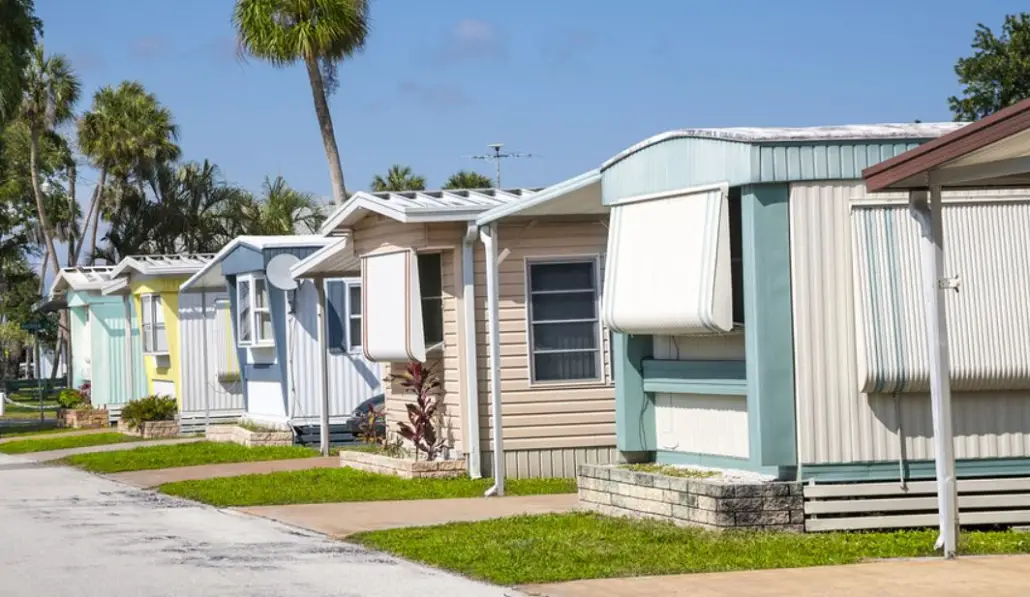
There is a lot of buzz surrounding alternative housing these days with the rising costs of regular homes. And with the increased interest in alternative housing comes a lot of questions and confusion.
In 2022, there are all kinds of alternative housing options like shipping container homes, tiny homes and even Earthships. But one of the most enduring, traditional and reliable types of alternative housing are mobile homes.
These days, mobile homes go by many names. You may see them referred to as modular homes or manufactured homes. But the truth is that modular, manufactured and mobile homes are all the same.
A mobile home is exactly the same as a regular house in most respects. However, they are not built on site. Instead, they are prefabricated and permanently attached to a chassis. Then, they are transported to a park, plot of and or other location.
Mobile homes tend to be smaller than regular homes as well. However, modern modular homes are built to rival the size of the average American home. Mobile homes are also more affordable than regular homes.
However, if you are looking to mobile homes as an investment or as a housing alternative, there are things you have to know before making a decision. Learn everything you need to know about mobile homes in the following article.
Overview of the Disadvantages of Mobile Homes
One of the biggest drawbacks of mobile homes is that they are smaller than a regular house. While this also means they are less expensive, it also means less storage for both your personal effects and vehicles. The value of mobile homes rarely appreciates so they may be poor investments.
The Disadvantages of Mobile Homes
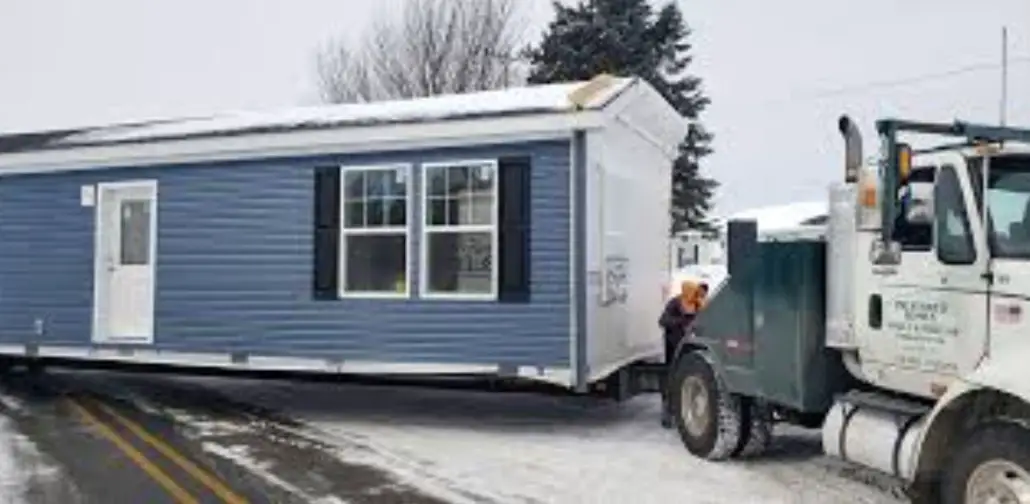
Depreciation of Value
Mobile homes typically do not appreciate in value. A regular home will typically appreciate in value due to the value of the land it is built on. However, mobile homes are often on lots and will depreciate much like a vehicle.
Poor Financing Terms
Because most mobile homes are purchased without the plot of land they sit on they are considered personal property as opposed to real estate.
Therefore you are likely to need a chattel loan which is a type of personal property loan. These kinds of loans have higher interest rates and shorter terms than real estate loans.
Resale Value
Reselling a used mobile home can be tricky and expensive – especially if it needs to be moved or is in a mobile home park. Much like a used vehicle, the value of a used mobile home will drop over time.
Design Quality
In general, mobile homes are not built to the same codes as regular stick-built homes. So the quality of the materials may be lesser.
Renting
Even if you own your mobile home outright, you may still have to pay rent for the land that it sits on. Of course, this can be negated by buying your mobile home along with a plot of land for it to be located on.
Rules and Landlords
If you do choose to keep your mobile home on a lot, you will still have a landlord of sorts – the organization or management company that owns the land.
Therefore you will be subject to certain rules and may not be able to do what you want with your home.
Temporary Foundations
Mobile homes are not built on a permanent, concrete foundation. This may make them more susceptible to flooding and other natural disasters.
Less Space Than A Traditional Home
The average “single-wide” mobile home is 13 feet tall, 76 feet long and 16 feet wide. This doesn’t leave a lot of space for storage, large furniture or luxury items.
Safety & Security Issues
Since mobile homes are generally not built with the same sturdy materials as stick-built homes, they can be more prone to break-ins.
Perception
Then of course there is the social stigma that surrounds mobile homes. People often perceive mobile homes as not being “real” homes.
People who live in mobile home parks are often portrayed in an unflattering light in the media as well.
Common Mobile Home Problems
- Roof Leaks – Mobile homes don’t have traditional roof structures like pitch and shingles so they are more prone to leaks.
- Foundation Issues – Earthquakes and floods may damage a mobile home since the foundation is not fixed.
- Insulation Issues – There is less space for insulation in the walls of mobile homes.
- Window and Door Alignment – Over time, the windows and doors of mobile homes can become misaligned causing drafts.
- HVAC & Plumbing Issues – It may be difficult to get proper HVAC and plumbing hookups depending on where you place your mobile home.
The Upside of Mobile Homes
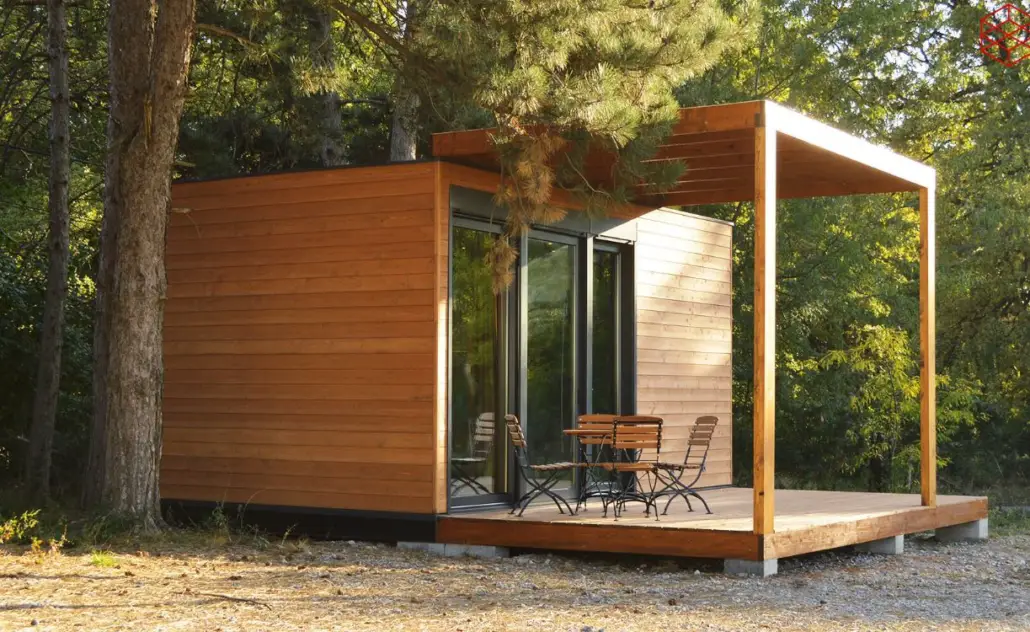
Affordability
Mobile homes are much more affordable than traditional stick-built homes making home ownership a possibility for more people.
Mobility
Since mobile homes are not attached to a concrete foundation, they can actually be towed anywhere.
Built to Spec
Modern-day mobile homes can be built to custom specifications. For example, you can get a spacious 3-bedroom mobile home with an attached garage built to your custom specifications.
Quicker to Build
The average mobile home can be manufactured in about 60 days whereas some single-family homes can take a year or more to build.
Better Locations
With a mobile home, you can more affordably move into an expensive city or area with high land prices.
Less Tax
If you already own the land you place your mobile home on, you will pay less tax for it since it is viewed by law as a personal property as opposed to real estate.
Comparisons
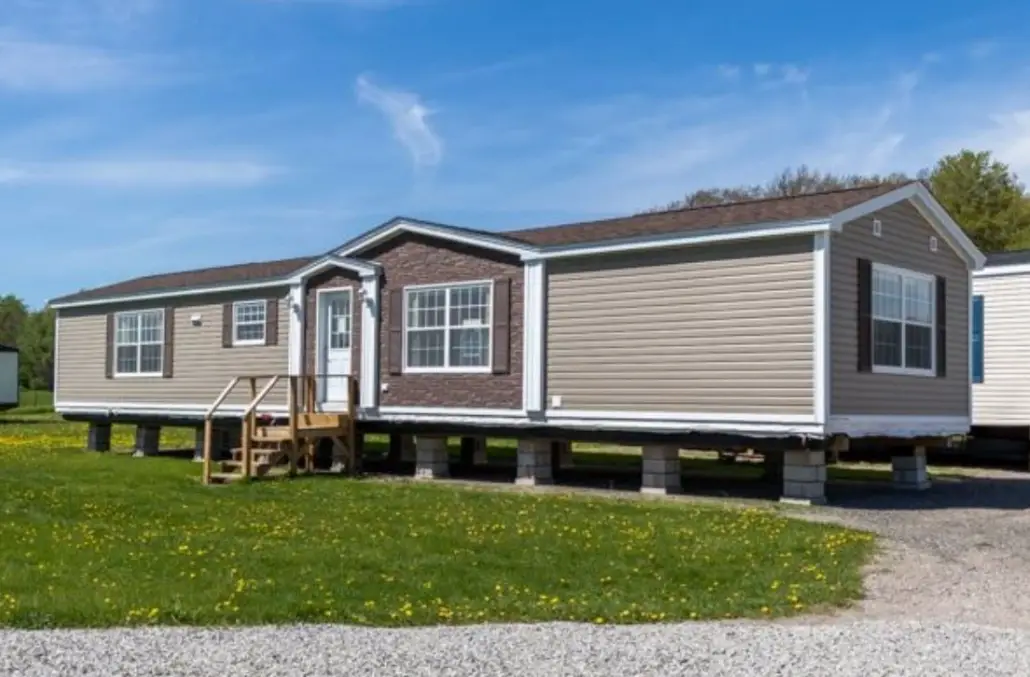
Mobile Home Vs Trailer
A mobile home is built for more permanent residence while a trailer can be towed or hauled much easier. A trailer will also have to be registered with a different department than a mobile home.
Mobile Home Vs House
A house is much more expensive and is built onto a fixed foundation; so it cannot be moved once built. However, a mobile home is more susceptible to natural disasters and doesn’t typically appreciate in value.
Mobile Home Vs RV
An RV is not considered a permanent residence. An RV is smaller and is motor-driven. You also have to register an RV with the Department of Motor Vehicles.
A mobile home is considered a permanent or semi-permanent residence. It is also much more expensive to transport a mobile home to a new location.
Mobile Home vs Apartment
Depending on the city, a mobile home can be much cheaper than an apartment. A mobile home is always placed on the ground floor whereas an apartment unit can be several stories up.
Of course, an apartment is a fixed part of a larger building. As such, you may actually have less outdoor room.
Mobile Home Vs Tiny Home
The biggest difference between a tiny home and a mobile home is size. A tiny home is typically anywhere between 100 and 400 square feet. A mobile home on average is between 600 and 1300 square feet.
Mobile Home Vs Condo
A larger mobile home can rival the size of your average 3-bedroom condo: about 1200 square feet. However, like a mobile home, your average condo will be subject to community rules.
On the plus side, mobile homes are still more affordable than the average condo. But condos will typically appreciate in value over time if they are maintained well and are in a desirable area.
Mobile Home FAQs
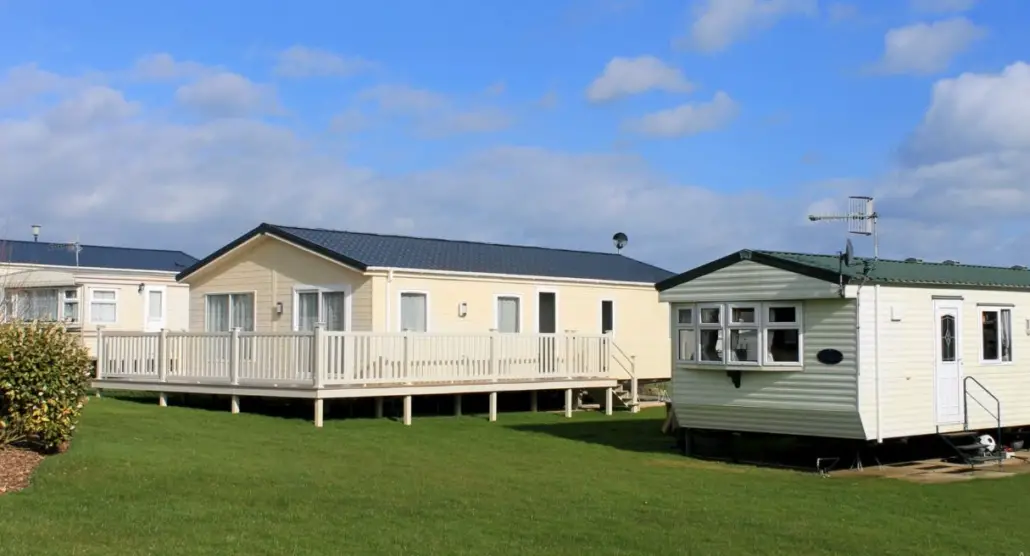
Q: Why Do So Many People Regret Buying Mobile Homes?
One of the biggest regrets that people who buy a mobile home have is the depreciation of value. They don’t realize that they aren’t investing in actual real estate and if they choose to sell, they typically do so at a loss.
Q: What is the lifespan of a mobile home?
Of course, this will depend on how well you maintain your mobile home and where it is placed. On average though, it is estimated that a mobile home can last for about 55 years.
Q: What should I inspect for a mobile home?
There are certain aspects of a mobile home you should examine (or have examined by a professional) before buying.
Some of the most important ones include the flooring, moisture barrier, septic tank, plumbing connections, walls, foundation, crawl space, windows, doors and the electric panel.
Q: How do you know if a mobile home is structurally sound?
One of the first things you should look out for is water stains on the ceiling. This could indicate that there is water damage and that the roof isn’t structurally sound.
Q: How are mobile homes framed?
The construction of a mobile home begins with a steel I-beam. The i-beam forms the frame for the structure and carries most of the weight of the upper and lateral portions.
Q: Are mobile homes safe?
Despite popular belief, mobile homes can be secured very well. Mobile homes can actually be anchored by steel straps that keep it secure in storms and even tornadoes.
Q: Why are mobile homes so cheap?
Mobile homes are mass-produced on assembly lines. This makes them much cheaper to build than traditional stick-built homes.
They are also smaller than stick-built homes and can be built much faster. All of this contributes to the lower cost to buy a mobile home when compared to a stick-built home.
Q: Are mobile homes worth it?
Mobile homes can be worth it if the situation is right. For example, if you are simply looking for affordable housing while you save up for something bigger, a mobile home is a good option.
A mobile home may also be a good option if you have a large piece of land that you are developing. While you are developing, you can use a mobile home as a temporary residence.
Q: Is a mobile home a good investment?
Historically, no. One of the reasons that home prices always seem to go up is that the land that they are built on almost invariably appreciates in value with time.
Since a mobile home is modular and can be moved at almost any time, you are not investing in the land but rather a piece of personal property. In general, mobile homes depreciate in value.
Q: What do you call a mobile home on wheels?
Both mobile and modular homes can be outfitted with wheels so that they can be transported to their permanent (or semi-permanent) lot.
Some people also mistake trailers and RVs for mobile homes with wheels; but the terms are certainly not interchangeable.
Q: What state has the most mobile homes?
According to data gathered in 2021, Texas is the state that has the most mobile homes. The figures show a recorded 137,460 mobile homes in Texas.
In addition to having the most actual mobile homes in the United States, Texas also has the most mobile home parks: the state boasts 5,176 mobile home parks.
Are Mobile Homes Worth Buying? – Final Assessment
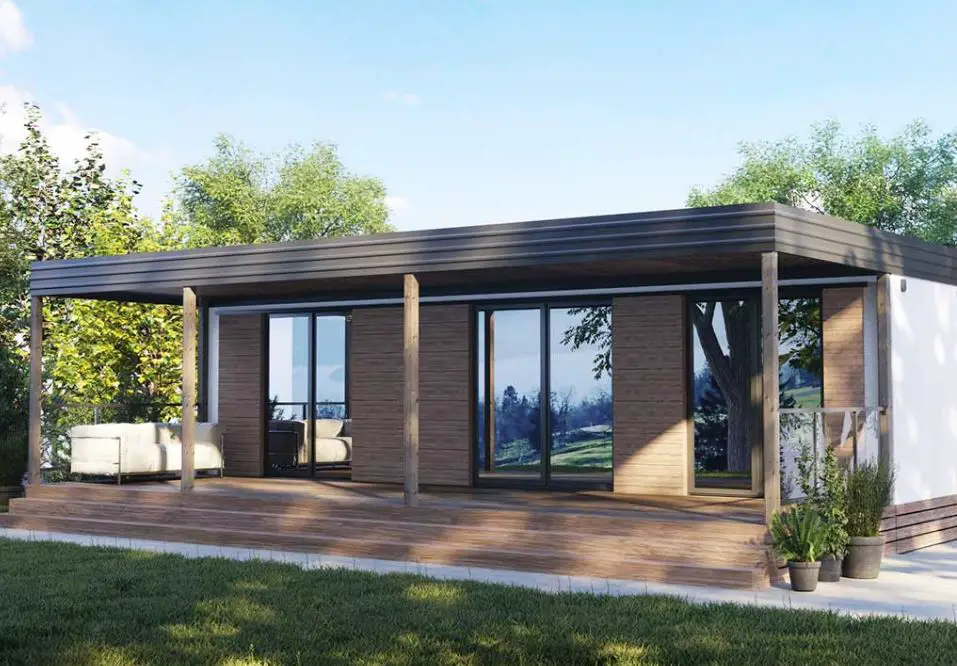
Like most kinds of alternative housing, mobile homes have almost an equal amount of up and downside. It’s clear that if you are looking for an investment opportunity, a mobile home would be a foolish choice.
They typically don’t appreciate in value and can be notoriously difficult to resell. However, a mobile home may be worth buying if you already have a plot of land you can place it on.
It may also be worth it if you live in an area that doesn’t experience a lot of natural disasters like earthquakes, hurricanes and tornadoes.
Mobile homes may also be worth it for those afflicted with wanderlust. Although they are expensive to transport, you can essentially choose to relocate the entire structure if you really want to.
So is a mobile home worth it? It will depend on what you need it for and what your plans are. Hopefully our list of pros, cons and insights have provided you with the information you need to make the right choice.


